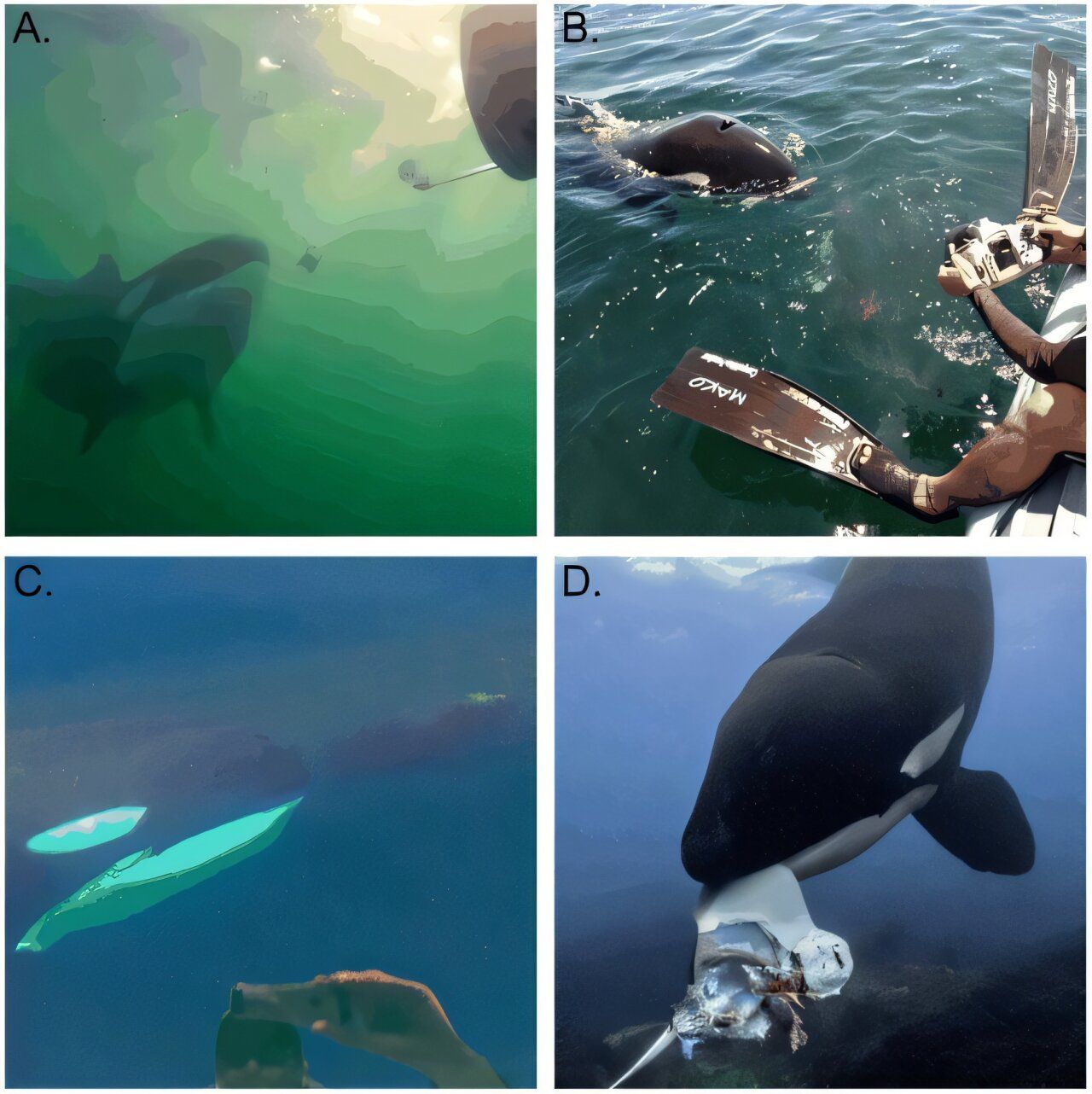🐟 Orcas share their food with humans
Follow us on Google News (click on ☆)
A study published in the Journal of Comparative Psychology reports 34 cases of such interactions recorded over several years, between California and New Zealand. Each time, the orcas brought a fish or stingray near a diver or boat, seemingly waiting for a reaction.

An orca offers a piece of stingray to a diver in the South Pacific.
Credit: Steve Hathaway
These observations intrigue researchers. Orcas are known for their advanced social intelligence, their ability to hunt in groups, and to transmit knowledge. Food sharing is common within their family groups, but its extension to individuals of another species raises new questions.
Scientists are considering several hypotheses: behavior motivated by curiosity, a desire to interact, or even a form of social play. In some cases, orcas persist after a refusal, suggesting they expect some form of response or acknowledgment.
Why do orcas share their food?
Among orcas, prey sharing is a well-established behavior that strengthens social bonds. It is frequently observed between mothers and calves, or between close group members. Some individuals even seem to use this practice to teach hunting skills to the younger ones.
The novelty here lies in the target of sharing: humans. For researchers, this demonstrates an ability to recognize another species as an interaction partner. It also reflects the behavioral flexibility of orcas, capable of adapting their conduct depending on the context.
This behavior could also be motivated by cognitive stimulation. Highly curious, orcas actively explore their environment, and humans clearly spark their interest.
How do orcas perceive humans?
Orcas appear to discern human behaviors and respond to them in differentiated ways. They approach slowly, observe, and adjust their posture. Their highly developed visual and auditory perception allows them to precisely track divers' movements and reactions.
Vocalizations heard during some interactions might indicate an attempt at communication, although this hypothesis requires further study. These sounds could play a role in assessing intentions or simply expressing curiosity.
Finally, some orcas might consider humans as potential hunting partners, or at least as observers with whom non-threatening contact can be established. This relational intelligence highlights the complexity of their social behavior and fuels discussions about animal consciousness.